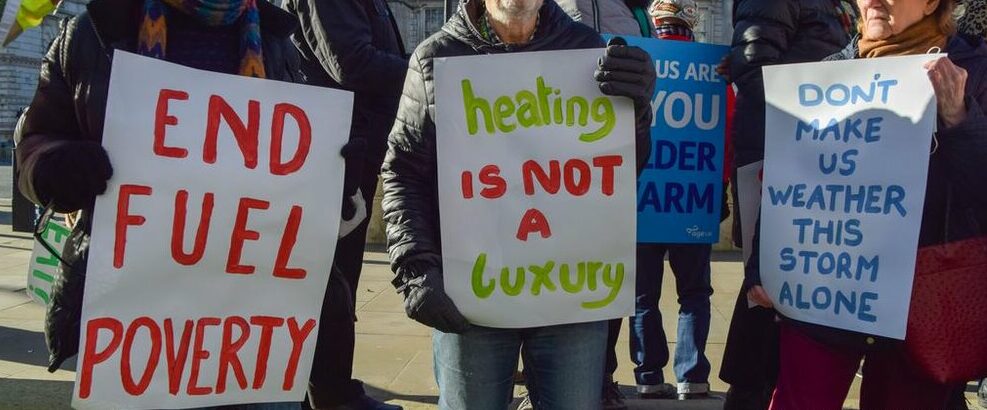They’re really going to do it. Britain is going to ban cars. Well, not all cars. Just all the ones you can afford that work. Because climate. By 2035 instead of 2040, because those extra five years after the 2030 final deadline are really important. And what impact will crippling private transportation and crashing the British economy have on people's well-being, including their ability to deal with inevitable extreme weather events? They don’t know and apparently don’t care.
For all his willingness to challenge conventional wisdom on a variety of topics, including Brexit, Boris Johnson appears thoroughly orthodox on climate, consorting with David Attenborough and gadding about promoting the launch of the 26th UN Climate Change conference in Glasgow, even though it doesn’t start until November. It’s never too early for a photo op.
There is a remarkably casual arrogance about suddenly moving the deadline for scrapping the family car up by five years, and telling citizens if they have trouble adjusting it’s their tough luck. NBC says “Britain's step amounts to a victory for electric cars that if copied globally could hit the wealth of oil producers”. Yes, and of everyone else too. It adds that “More than a dozen countries around the world have announced plans to crack down on new sales of gas and diesel vehicles” including France, still on its 2040 target and Norway with a classic “non-binding goal that by 2025 all cars should be zero emissions.” Zero? Really? No net emissions in the construction of the vehicle, the generation and transmission of the power (and thus the construction of the power plant or other facility), the disposal at the end of its life? None? Bosh.
Double-bosh to the British government’s plan to cut total national GHG emissions to net zero by 2050. Nobody knows how to do it and the only way they’ll get there is to fudge the numbers. Humans emit CO2. So does almost everything we do. Nobody can foresee all the consequences of everything everyone does, not even the carbon consequences. And with fading evidence that slow accumulation of CO2 portends catastrophe, it’s astounding to court economic catastrophe in such a confused manner.
For instance, in echoes of Europe’s great diesel debacle, where governments pushed consumers hard to buy this “cleaner” technology including subsidizing both the vehicles and the fuel only to realize it wasn’t cleaner at all, the British government suddenly added the previously subsidized and relatively popular hybrid gas/electric cars to the forbidden zone. And said it will act sooner than 2035 if possible. Plan? What plan?
It is easy to see ways this lack of plan might fail. Including consumers stocking up on gasoline cars to beat the ban. Or crumbling gasoline infrastructure and limits on resale rendering virtually all existing cars worthless over time. Or a vast popular revolt. (Especially if the UK government also goes ahead with a scheme to ban gas furnaces whenever the whim strikes, without any idea who should pay, what it will cost, if there are even enough tradespersons and so forth.)
NBC sees none of these potential drawbacks. Perhaps because it did not look. Instead it burbled that “According to experts, the targets of countries to ban sales of new gas and diesel vehicles won't be effective without accompanying action.” And these actions evidently include “informing consumers about the vehicles on offer” according to one completely unbiased expert NBC sought out with no preconceived notion what he’d say, namely “Peter Mock, managing director of the International Council on Clean Transportation in Europe.” And certainly consumers will have to be told about cars they are allowed to buy because otherwise they’d only find out from advertisements, the internet, their friends and car dealers.
Then there’s the pesky matter Mock also mentioned of “building of the necessary charging infrastructure”. Um yeah. Don’t forget to do it. Unless of course you enjoy the thought of even lower emissions as people don’t bother buying cars they can’t drive anyway.
NBC did its best to make it all sound easy, saying “In Britain, diesel and gasoline models still account for most new vehicle registrations in Britain. However, registrations of electric vehicles rose 144 percent between 2018 and 2019, according to the Society of Motor Manufacturers and Traders.” Yes, but to what total share? Oh dear. 2.3%.
So the government will totally change the way Britons drive within 15 years, utterly rebuild a vast national infrastructure network, and get it all done right on time from the engineering to the estimates of which technology to back. Sure. Just like it always does. And if you don’t like it, well, don’t worry. They’ll probably have another inspiration and junk this one.



Research from Imperial College London and Germany clearly show that electric cars with a range greater than 200 miles never repay the CO2 produced upon when building them. In places like China and India electric cars of all sizes never repay their CO2 debt. That is because the power generated to charge them burns coal etc.
Even a small electric car in the UK takes about 5 to 6 years to repay its CO2 debt for the battery build and ten years for the total car.
Basically any usable electric car with enough range never repays its CO2 debt. Not that it matters because more CO2 will overall be beneficial but the UK government is acting stupidly on this.
To charge all these electric cars, some 31 million, we will need ten new nuclear power stations plus a huge infrastructure of charging points costing many, man billions. Nobody can buy a car without having that inftrastructure in place. and only one new power station is planned.that was needed anyway.. the world has simply gone mad.
Will they also start putting industrial wind turbines in urban centres?
I suspect that the British Government can employ clever accountants and scientists, who will prove (with a 98% consensus) that they are delivering on their promises - whatever the reality!